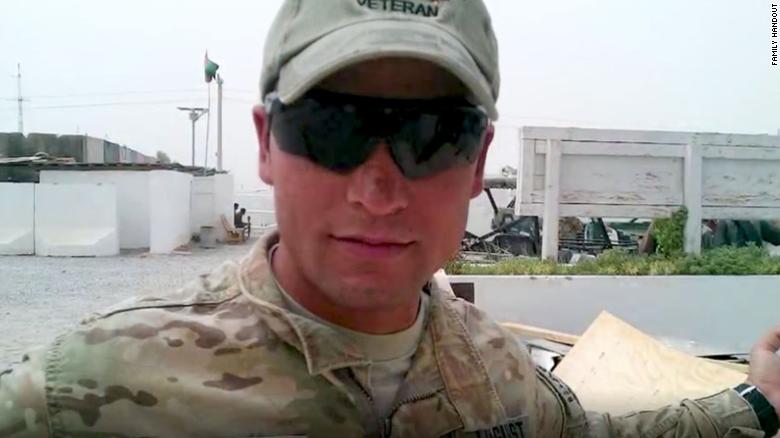Congressman Bill Posey (R-Rockledge) joined 15 others voting against the other 407 members of Congress who supported a bill increasing the number of Special Immigrant Visas (SIVs) to accommodate promises made to the Afghans who worked with the U.S. Military to come to America amid death threats by the Taliban.
This bill would raise the cap on SIVs to meet demand in addition to making other changes that streamline the program to operate more efficiently amid the U.S. withdrawal from Afghanistan. The argument against the bill was to require that Afghans applying for SIVs to offer a credible sworn statement that they face Taliban death threats.
We have had a long-standing policy between the United States and foreign nationals of Iraq and Afghanistan who serve as interpreters and advisors to our military. They put their lives and their families lives at stake in order to assist the US Military in doing its job in their homelands. Without their sacrifices, missions would be nearly impossible as they provide translation services during Key Leader Engagements (KLE’s), documentation, and valuable intelligence and historical context of the areas we operate in.
They are high priority targets for the insurgency, and when captured or identified are forced to make a decision to attack US Forces internally once returning to duty, or face death for themselves and their families. Their loyalty to the US Forces more often than not leads to their own demise.
In exchange for their courageous, and invaluable service, once meeting the time requirements, they are offered a special visa to come to the United States and escape the dangers of their country. More often than not, these same individuals join the US Military and continue their work as interpreters in uniform. Others find new jobs and look for a fresh start, and better life for them and their family.
As the US leaves Afghanistan, the threat to their safety is higher than it ever has been. Yesterday, Sohail Pardis, an Afghan interpreter who worked for the US Army was beheaded by the Taliban.
He was one of thousands of interpreters who served alongside US Forces who now face persecution by the Taliban as they gain control over the area.
CNN reported Pardis was driving from his home in Afghanistan’s capital Kabul to nearby Khost province to pick up his sister for the upcoming Eid holiday celebrations to mark the end of Ramadan. It was supposed to be a happy occasion enjoyed with family. His vehicle was blocked at a checkpoint by Taliban militants. Just days before, Pardis had confided to his friend that he was receiving death threats from the Taliban, who had discovered he had worked as a translator for the United States Army for 16 months during the 20-year-long conflict.

“They were telling him you are a spy for the Americans, you are the eyes of the Americans and you are infidel, and we will kill you and your family,” his friend and co-worker Abdulhaq Ayoubi told CNN. As he approached the checkpoint, Pardis put his foot on the accelerator to speed through. He was not seen alive again. Villagers who witnessed the incident told the Red Crescent the Taliban shot his car before it swerved and stopped. They then dragged Pardis out of the vehicle and beheaded him.
During the two decades of war, approximately 18,000 Afghans have assisted the United States Military. Applicants who meet the time in service qualifications for the Special Immigrant Visa program, still go through a lengthy and rigorous screening process which includes sponsorship and letters of recommendations from military personnel that served with them, polygraphs, and background checks.
Many of them are often killed while waiting for their applications to be processed.
During my 455 days in Mosul, Iraq, I was the linguist manager for our 14 linguists assigned to our 12 man Corps Level Military Transition Team. Our linguists, male and female, served right beside us facing the same dangers of combat as us, on a daily basis. We could not have done our job without them. Their ages ranged from 18 to mid 50’s. Their compensation was about $1000/month.
Members of my team sponsored several of them to come back to the United States. Some of them did successfully. One of them “Adam” was violently murdered in a vehicle born improvised explosive device (VBIED) attack. Not 1, not 2, but 3 attacks.
The first attack Adam survived was from a “sticky bomb” where an explosive with an adhesive was stuck to his vehicle and detonated while he was driving home. He escaped that attack with minor injuries. The second time his vehicle was attacked, it took both of his legs, but he survived it. The 3rd attack was the final bomb that ultimately took his life.
Adam served not only with my team, but the teams that came before mine in Mosul, for years. He was an extremely valuable member of our group. His service without question was honorable, and courageous. He assisted us in humanitarian missions, combat missions, assisting us in capturing terrorists by securing arrest warrants through his relationships with key leaders. His service deserved the promises made to him. Unfortunately he did not live long enough to enjoy his reward.



Sadly, Adam’s level of honorable service, as well as his demise is a common one. It speaks to the level of commitment in the face of the real danger, that people like him displayed daily.
You build a bond with those you serve with, putting your life on the line that few can fully understand that have not had the privilege to do so. For those who have not, it may be difficult to fully understand the importance, and honor of this bill. Congressman Posey never has.
Combat Veteran and former State Representative candidate Lloyd Dabbs did not hold back on his opinion of Posey’s nay vote stating, “Bill Posey says that ”fulfilling our commitments to veterans who have served is [the right thing to do]”, yet fails to honor the service of our Afghan allies who fought and died along side American troops. He is another faux-patriot who never served, who dishonors the legacy of those who have. His vote demonstrates the cowardice of his character and as a retired veteran, I am sickened that such a person represents the 8th Congressional District. He doesn’t represent Floridians or their commitment to its service members.”
The intensity of Dabbs’ statement is indicative of how personal this issue is to veterans.

Combat Veteran Patrick Wells is challenging Posey in the Republican Primary race next year.
“This is a total disgrace! Those Afghans risked their lives to help our troops. Ensuring their protection is the absolute minimum we need to do to thank them for what they’ve done for us. These brave people will be slaughtered if we don’t act to protect them.
Posey just showed our Military that he has zero regard for the security of future operations throughout the world. People will remember how we treated others who helped us.”
Posey did not supply a response or comment for his vote.
This bill — known as the ALLIES Act — would increase the number of Special Immigrant Visas (SIVs) available to Afghans who served as translators or otherwise assisted the U.S. and coalition forces in Afghanistan by 8,000 (which would raise the overall cap to 18,000 to cover the backlog of applicants). It would remove the requirement that eligible Afghans have engaged in “sensitive and trusted” employment with the International Security Assistance Force to expand the pool of qualified applicants; in addition to ending the requirement for a “credible sworn statement” about the threat applicants face for having worked on behalf of the U.S. government due to the public and clandestine reporting that Afghans who worked for the U.S. face heightened risk of retribution from the Taliban.
The bill’s full title is the Averting Loss of Life and Injury by Expediting SIVs (ALLIES) Act of 2021.
Rep. Jason Crow (D-CO) introduced this bill with 23 bipartisan members of the Honoring Our Promises Working Group to increase the cap on Special Immigrant Visas (SIVs) for Afghans who worked with the U.S. and make other changes to streamline the program. Crow offered the following statement on the bill’s introduction:
“When I served in Iraq and Afghanistan, I worked closely with local translators and contractors who were critical to our safety and the success of our mission. They performed this service at great risk to themselves and their families, but with the understanding that the U.S. would stand by them. Now it is time for the U.S. to honor our promises and protect our Afghan partners. The ALLIES Act would expedite the SIV application process by increasing the SIV cap and removing burdensome requirements. I’m proud to work on this commonsense legislation with my colleagues in the Honoring our Promises Working Group.”
Lead Republican cosponsor Rep. Adam Kinzinger (R-IL) added:
“Since 2006, Congress has signaled their support for the Afghan men and women who assisted the United States in the Global War on Terror through the Special Immigrant Visa (SIV) program. While the program has suffered unacceptable delays and backlogs since its creation, the imminent withdrawal of U.S. forces from Afghanistan has placed thousands of our allies at risk for retribution. Today, I’m proud to co-lead legislation with my colleague Congressman Crow that will authorize additional SIVs and remove unnecessary hurdles for our allies to find safety in the United States—just as we promised. More needs to be done to fulfill our promise to our Afghan allies. The Administration must begin evacuating those most at risk for retribution from the Taliban. Again, I want to thank Congressman Crow for his leadership in crafting this legislation.”
American Legion National Security Commission Chairman Steve Brennan expressed his organization’s support for the bill in a statement:
“Alliance with Afghan wartime allies forged bridges to the Afghan people and their linguistic skills proved essential in building close working relations with local nationals. Now, with the U.S. withdrawal date in Afghanistan drawing closer, their lives are endangered more than ever as terrorist organizations like the Taliban seek retribution. The ALLIES Act will increase the cap of Afghan SIVs and ensure Afghan interpreters can move expeditiously through the SIV process so they can leave Afghanistan as soon as possible. The American Legion vigorously supports the ALLIES Act because it will protect the lives of Afghan interpreters and recognize their contributions as loyal allies who stood shoulder to shoulder with U.S. servicemembers.”
This legislation has the support of 134 bipartisan cosponsors, including 99 Democrats and 35 Republicans.
In 2006, Congress established the Special Immigrant Visa (SIV) program to allow Afghans and Iraqis who served alongside U.S. forces as interpreters or contractors to receive permanent U.S. resident status and access to benefits for refugees. From the creation of the SIV program to March 31, 2021, a total of 99,279 individuals received SIV visas, including 30,541 Afghans and Iraqis who worked with the U.S. plus 68,738 dependent spouses and children, according to data from the State Dept.
The SIV program currently has an application backlog of more than 18,000 Afghans. Congress has acted on several occasions over the years to adopt bills to address the visa shortage by incorporating legislation into defense authorization bills.
Historically, it takes about 800 days for the State Dept. to process an application and conduct security screenings. In addition to security screenings, medical exams are a significant bottleneck in the process as Afghans are required to travel to Kabul to receive them, a journey which can prove dangerous given the Taliban’s presence in the country.
Afghan interpreters and their families are often targeted by the Taliban as part of the terror group’s campaign of assassination and intimidation. In a House Armed Services Committee hearing on the issue in May, Rep. Michael Waltz (R-FL), a former Green Beret, and retired Army Ranger Rep. Jason Crow (D-CO) recounted stories about Afghans they served alongside who were subsequently murdered by the Taliban for assisting American and coalition forces. Crow explained that a man named Mohammad who worked with the U.S. for 12 years and first applied for a Special Immigrant Visa (SIV) in 2010 faced repeated delays and denials until he was gunned down in January 2021 in front of his 10-year old son by the Taliban, who later sent Mohammad’s oldest son a death threat.
In June 2021, the House passed a bill to waive for one year the requirement that Afghans seeking SIVs undergo a medical exam prior to their admission to the U.S. amid the ongoing U.S. withdrawal. The U.S. is expected to complete its withdrawal before the end of August 2021 after the Biden administration initially announced a September 11th deadline.
Sen. Richard C. Shelby of Alabama, the ranking Republican on the Appropriations Committee, said Monday that he was open to funding to help relocate Afghans who helped the U.S. government in his own supplemental proposal, which totals just over $1 billion.




